In the Kharkiv metro, harassing messages for the city’s residents appeared
“Kharkiv = Invincibility”: In the Kharkiv metro, depressing messages for the city’s residents appeared – motivational boards designed to encourage Kharkiv residents who use the metro as a means of transport and shelter during air raids.
At the beginning of March, messages from Novaya poshta appeared in the Kyiv newspaper: “Station of free people of independent Ukraine”, “Transition to the station “Ukrainian language”, “Don’t snuggle, but you can hug”. The initiative in Kharkiv is the continuation of New Post’s collaboration with Kyiv Metro.
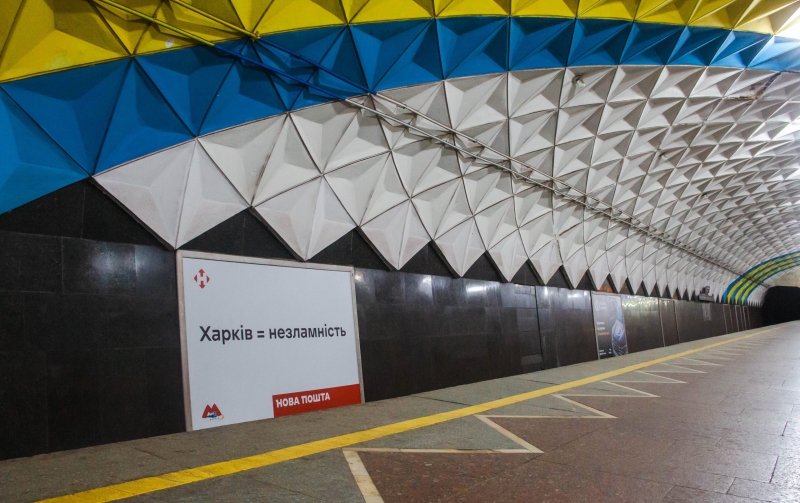
“We were inspired by the positive feedback from Kyiv residents regarding the initiative in the capital metro, so we decided to continue it in the Kharkiv metro. For 89 days from the beginning of the full-scale Russian invasion, he worked in shelter mode, sheltering thousands of Kharkiv residents. With this initiative, we want to encourage Kharkiv metro passengers and those who hide in stations during air raids. Despite all the difficulties, Kharkiv will stand, and Ukraine will win!” — says Olena Plakhova, Director of Reputation Management at Nova Poshta.
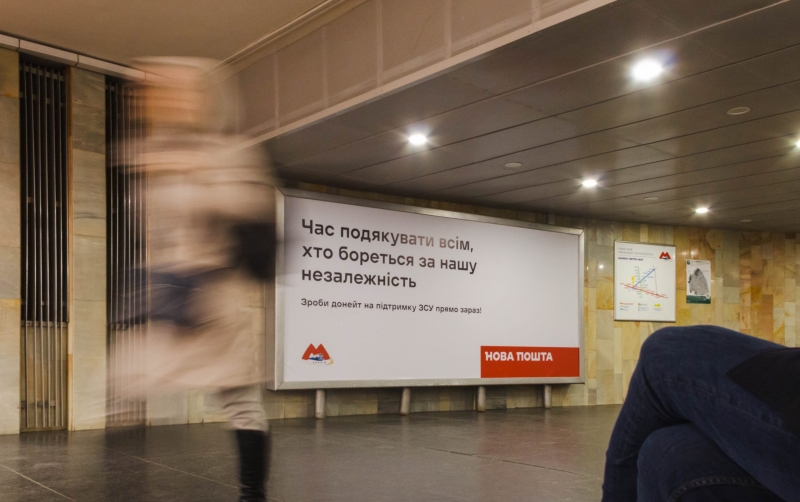
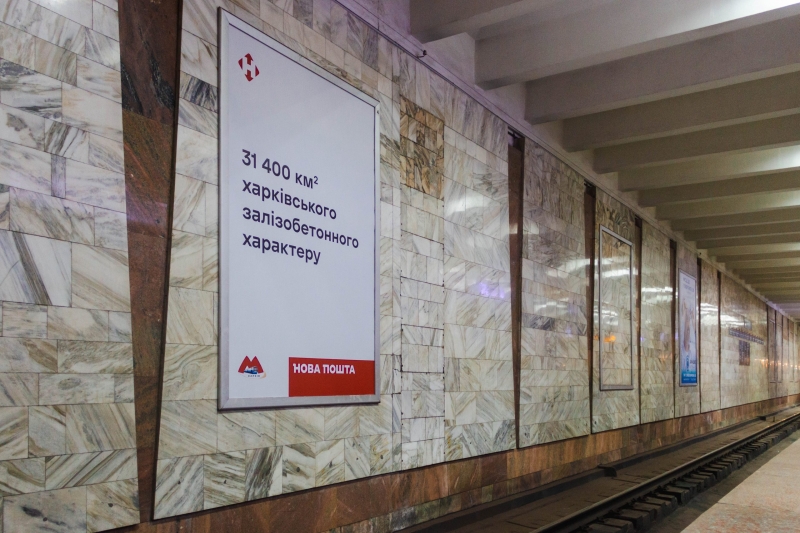
More than 20 boards appeared at Kharkiv stations “Maidan Konstitutsii”, “Defenders of Ukraine”, “Peremoha”, “Derzhprom”, “University”, “Turboatom”, “Akademika Barabashova”, etc.
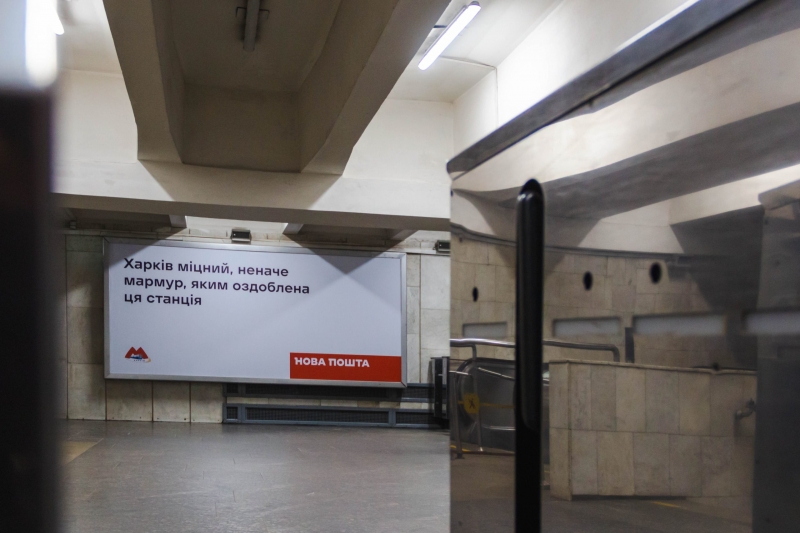
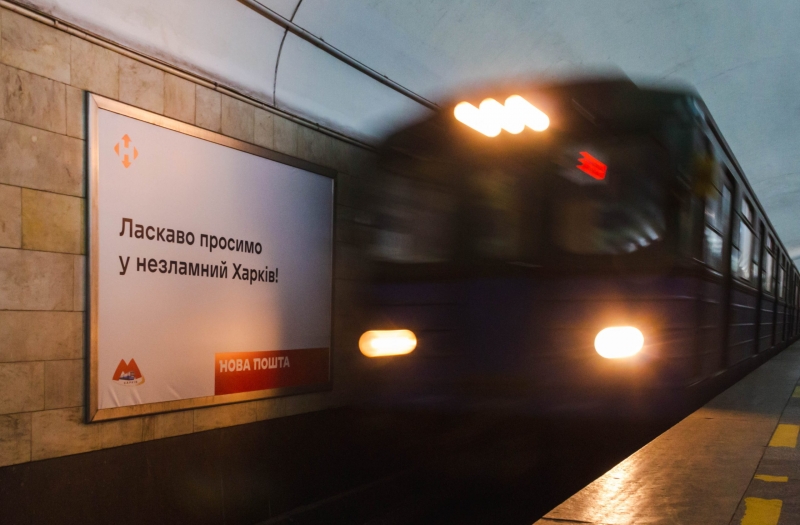
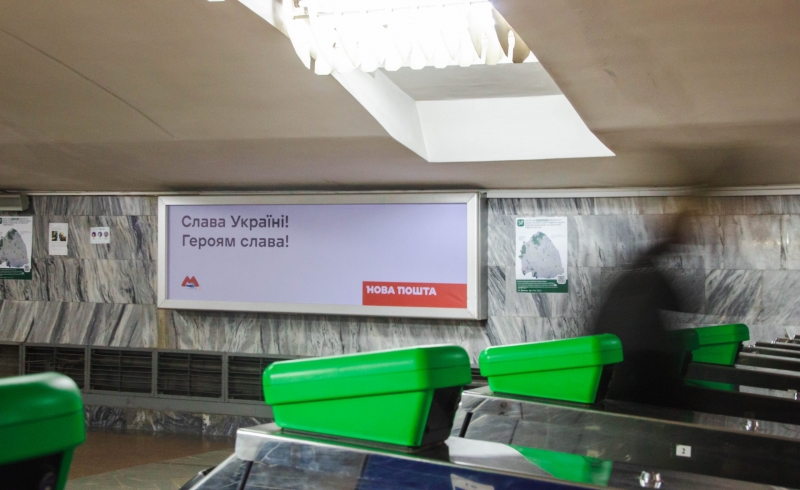
The inscriptions on the boards convey the Kharkiv color and take into account the specifics of life in the city during the war: “Kharkiv = invincibility”, “Kharkiv communal workers, you are incredible!”, “No matter what happens, we will meet at “Gradusnyk””, “It is easy to switch to Ukrainian: as from “University” to “Derzhprom”, “Terminal station: “Victory”, etc.
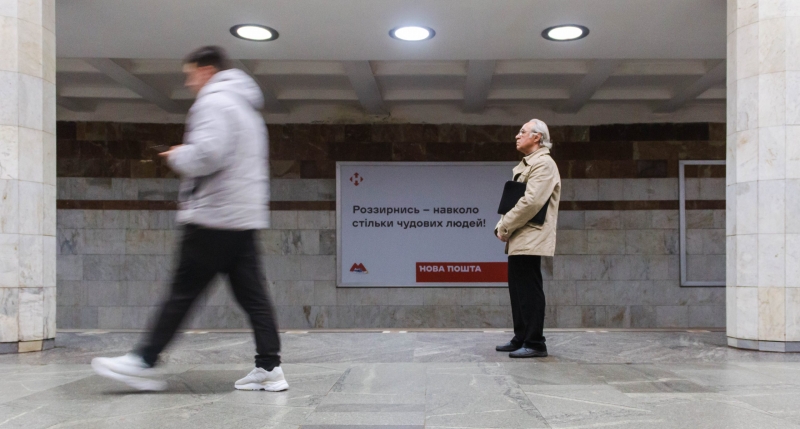
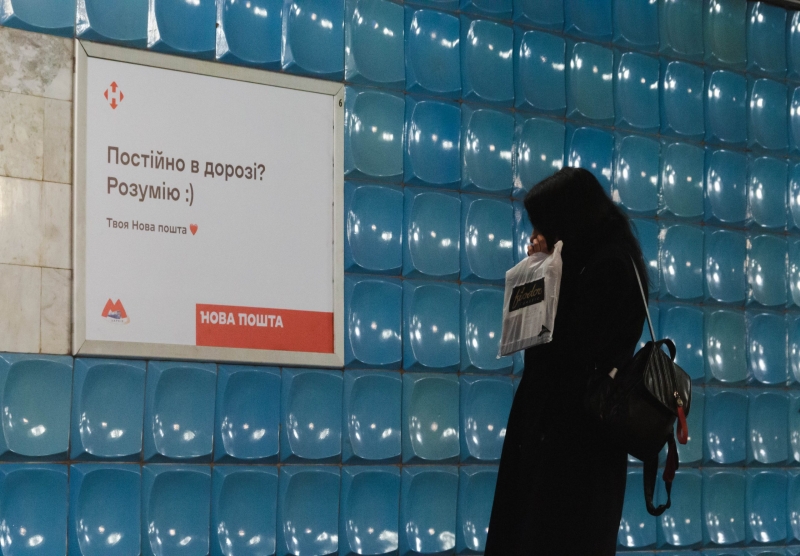
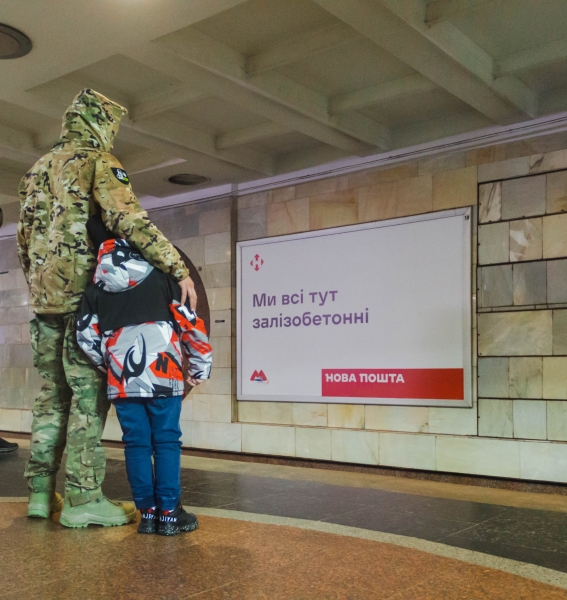
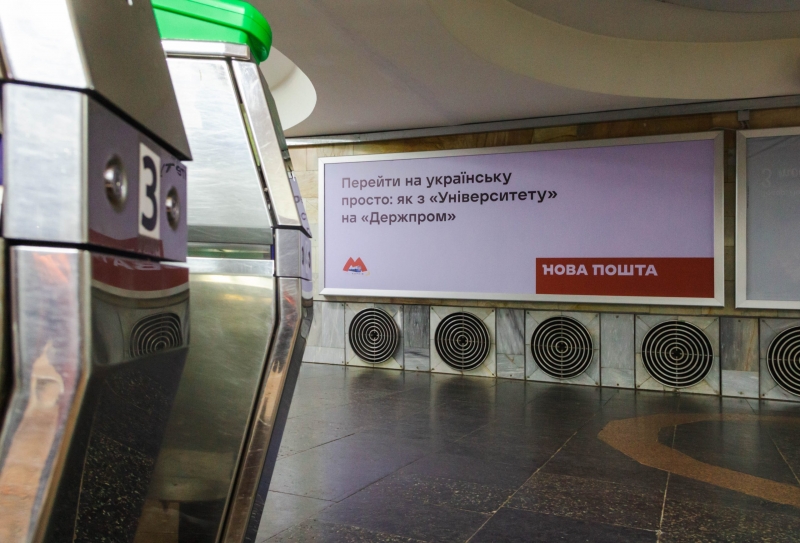
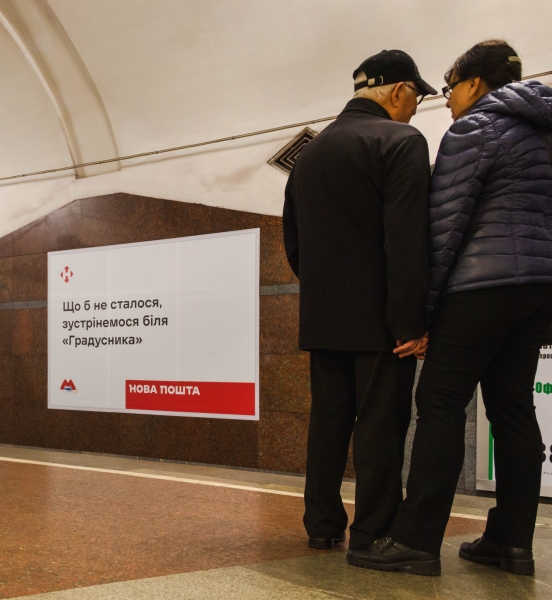
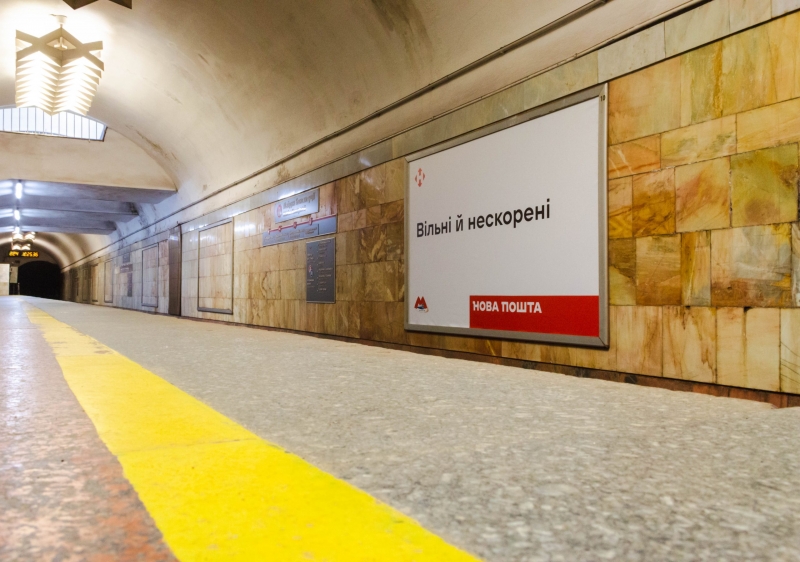
According to the information of the Kharkiv Regional Prosecutor’s Office, as of the end of 2022, the Russians damaged and destroyed more than 600 infrastructure objects in the city, in particular, residential buildings, hospitals, educational institutions, administrative buildings, industrial enterprises, cultural and historical monuments, etc. Russian terror killed more than 1,000 residents of the city and region, more than 70 of them children.
